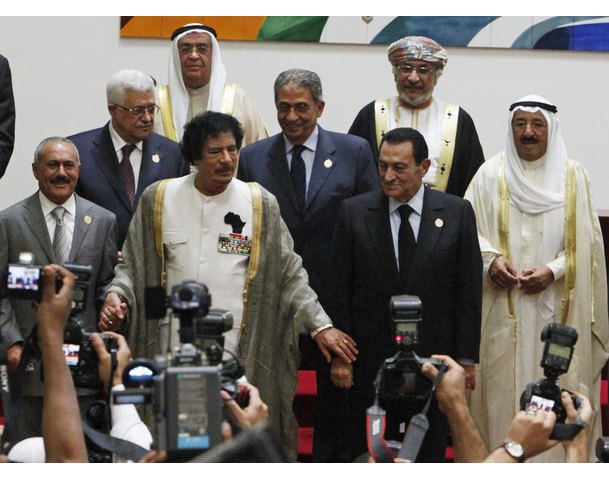
By Hicham Yezza
As an Arab, and an activist, the past few weeks have proven to be some of the most moving and exhilarating moments of my generation. After decades of hope and despair, it seems the iron grip of the Arab authoritarian kleptocracy has been, at long last, irrevocably broken. In every discussion I’ve had with fellow activists (some in Egypt and Tunisia, but also others in many other Arab countries on the cusp of change), one truth is evident: this generation is determined to reclaim, and restore, the legacy of its nation’s revolutionary struggle for independence from colonialism, a legacy spoiled and defiled by decades of dictatorship and repression.
However, one of the less charming aspects of observing the media deluge around the monumental events in Tunisia and Egypt, is the seemingly robotic framing, by people who should know better, of the options facing the ‘West’. Pundit after pundit, article after article, interview after breathless interview, the debate continues to oscillate between two choices: ‘democracy for untested Arabs’, on the one hand, and a vague, near-mystical notion called “stability in the region” on the other.
Of course, the very idea that freedom is something the West grants to carefully-selected, less enlightened Untermenschen, whilst being astonishingly patronising, is hardly new to anyone with a passing knowledge of Imperialist history. After all, women, black people and countless groups from the ranks of the oppressed have all been told, at some point or other in the not-too-distant past, that they too needed to earn their right to be equal. For decades, seriously-taken men solemnly pontificated in “civilized” circles about whether other quasi-human groups were “ready” to be “invited”, amidst concerns that granting them equal rights could lead to unspeakable catastrophes.
Paul Valery memorably called politics “the art of preventing people from taking part in affairs which properly concern them.” For millions of Arabs, it has been very revealing to see many Western pundits and politicians publicly, and in all seriousness, agonise over the seemingly tricky conundrum of “allowing” Arabs to take control of their own destinies, and whether this incredible act of generosity might turn out to be a mistake if, heaven forbid, the lucky candidates prove to be unworthy recipients by electing the ‘wrong’ leaders.
Over the past few days, the inalienable right of eighty million Egyptians (and a quarter billion Arabs) to have a say in their own lives has been routinely dismissed as a mere geo-political consideration that ought not to distract from the bigger, more pressing calculus of realpolitik-inspired “stability”. Take, for instance, the calls by Barack Obama, Tony Blair, Hilary Clinton and others, for something called an “orderly transition” in Egypt that would, conveniently enough, allow Mubarak to hold on to power for a few more months. Egyptians are being asked to wait for their freedom until the US says they can have it (or, according to realpolitik-inspired cynics, until a suitably-pliant replacement is ready).
As to the much-vaunted regional “stability” (apparently under threat from the horrid prospect of ordinary Egyptians getting involved in their own affairs,) to call the notion Orwellian is to combine cliché with understatement. Indeed, whilst the regional elites and their Western patrons have been enjoying the fruits of “stability”, generations of ordinary Arabs have been subjected to half a century of quasi-pathological state brutality, institutional thuggery, systemic corruption, a crushing denial of basic rights of expression, communication, travel, and protest; not to mention entire generations of youths condemned to lives of abject misery and pointlessness, as well as millions of women infantilised and brutalised by a combination of patriarchy and bureaucracy.
Make no mistake, these are not distant, occasional aberrations dotted sparingly across national timelines, but hourly occurrences, to this very day, taking place, to varying degrees, across most of the Arab world. They are not sporadic excesses committed by errant foot soldiers but constitute the very Modus Operandi of entire systems of power, and inform their survival mechanisms. This is the “stability” the US and its allies are scrambling to safeguard. And to defend it as some sort of venerable achievement is to add insult to the injuries of its dozens of millions of victims.
And yet, these obvious truths have hardly featured in official pronouncements. Instead, we keep hearing the same feverish tropes about the horrific ‘void’ that departing authoritarian relics might be leaving behind and how it might present a ripe target for an opportunistic grab by the Islamist bogeyman. The same goes for the oft-repeated “concern” about whether Arabs (despite some mysterious genetic defect, the tone often seems to imply) have the necessary civil society “structures” and “traditions” to sustain a steady transition towards democracy. Whilst it is no doubt legitimate to discuss the technical modalities of how such a transition can take place (and it might surprise some to know that many in the Arab world have been doing just that for years now), it is ludicrous to assume that Arabs are somehow inherently incompatible with democracy.
Let us not forget that almost every single internal Arab uprising against dictatorship and injustice, since the 1950s, has ultimately failed because, more often than not, the West chose to cover its eyes with one hand while supplying the weapons of repression with the other. Indeed, the Arab population is in such dire straits, economically and civilisationally, because its attempts to break free had been systematically and ruthlessly crushed for so long, and not the other way round.
It should no longer be acceptable to peddle, or take seriously, the line that Arabs cannot be left to their own devices because they would invariably make a mess of it. Ultimately, a prosperous and peaceful Middle East must be seen as the crowning result, not the first condition, of the Arab populations reclaiming their right to take part in their own affairs. The time for political calculations at their expense must end now.
Hicham Yezza is editor-in-chief of Ceasefire.
No comments:
Post a Comment